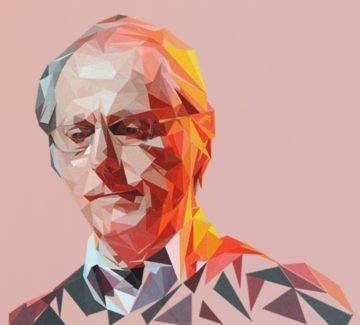Tess McNulty in The Point:
 Flip through Don DeLillo’s massive corpus, and you may notice that the word “silence” crops up, again and again, at crucial moments. It’s the first word he spoke to the public when, in 1982, he gave his first, reluctant interview. Why, asked the critic Tom LeClair, did DeLillo shun the public eye? “Silence, exile, cunning, and so on,” the author responded, quoting Stephen Dedalus, tongue in cheek. It’s a word that then wended through his work, uttered by his secretive, mysterious men—“Silence,” says Underworld’s Nick Shay, “is the condition you accept as a judgment on your crimes.” It’s a word that, finally, became the target of his most serious critic, James Wood. Far from quiet, Wood complained in a 2000 essay, DeLillo’s books simply could not shut up. Underworld in particular—his vast 1997 Cold War epic—seemed gripped by the delusion that it “might never have to end.” “There are many enemies, seen and unseen, in Underworld,” wrote Wood, “but silence is not one of them.”
Flip through Don DeLillo’s massive corpus, and you may notice that the word “silence” crops up, again and again, at crucial moments. It’s the first word he spoke to the public when, in 1982, he gave his first, reluctant interview. Why, asked the critic Tom LeClair, did DeLillo shun the public eye? “Silence, exile, cunning, and so on,” the author responded, quoting Stephen Dedalus, tongue in cheek. It’s a word that then wended through his work, uttered by his secretive, mysterious men—“Silence,” says Underworld’s Nick Shay, “is the condition you accept as a judgment on your crimes.” It’s a word that, finally, became the target of his most serious critic, James Wood. Far from quiet, Wood complained in a 2000 essay, DeLillo’s books simply could not shut up. Underworld in particular—his vast 1997 Cold War epic—seemed gripped by the delusion that it “might never have to end.” “There are many enemies, seen and unseen, in Underworld,” wrote Wood, “but silence is not one of them.”
White Noise was DeLillo’s breakout book, his first—in 1985—to inspire loud chatter. “Postmodernism, Postmodernism!” the critics all cried, as the author ran his twelve-year-long victory lap, publishing Libra, Mao II and then Underworld to resounding applause. These, the 1980s and 1990s, were the decades of DeLillo’s canonization.
More here.
